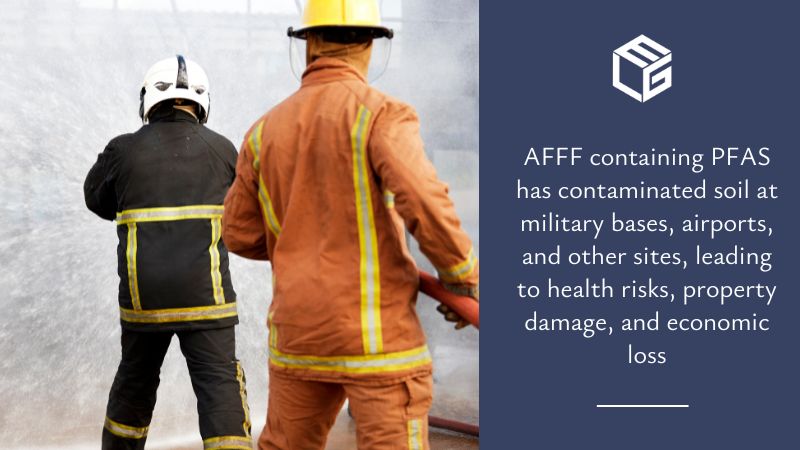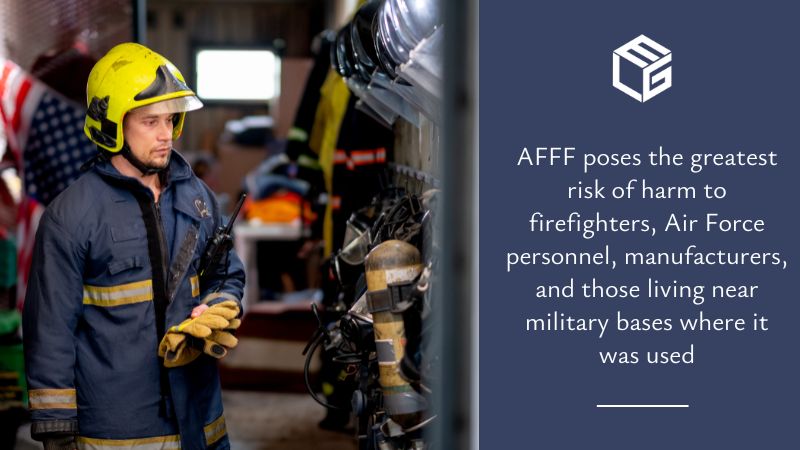Firefighters are at high risk of AFFF exposure - Qualifying diseases
International studies on firefighters confirmed that they are at increased risk of testicular cancer, which can even be considered an occupational disease for firefighters.
Besides accumulating in the blood of exposed individuals, PFAS accumulate throughout life especially in the liver and kidneys, increasing the risk of developing cancer and other serious diseases.
Firefighters were never told about the health consequences of AFFF and no one made much effort to stop it from escaping into the environment. The following are the diseases qualifying for filing a claim with the manufacturers of AFFF:
Health organizations such as The Centers for Disease Control and Prevention (CDC), American Cancer Society (ACS), and U.S. Environment Protection Agency (EPA) have found that certain PFAS may affect the immune system and increase the risk of cancer.
The EPA has classified the chemicals in the foam products as "emerging contaminants", meaning that the health hazards and environmental risks associated with AFFF are significant. Recently, the International Agency for Research on Cancer (IARC) classified PFOA as a "possible carcinogenic to humans", based on evidence of bladder cancer from studies in factory workers exposed to PFOA.
Exposure to AFFF any time as a firefighter after 1960 might be sufficient to become eligible. Obviously, the better cases will have more exposure, but the toxicity of the chemicals is such that even minimal direct exposure on a semi-regular basis can cause harm.
Who can be harmed by the fire suppressant AFFF?
The most studied toxic chemicals in AFFF are perfluorooctane sulfonic acid (PFOS) and perfluorooctanoic acid (PFOA). Originally produced by 3M, these compounds have been used in manufacturing all kinds of chemical products.
Although efficient, PFAS have unique properties that cause them to persist, accumulate in the blood and body of people exposed to them, are also extremely persistent in the environment, and likely have toxic effects on human health.
Those most affected by exposure to AFFF are firefighters who worked in:
The U.S. military used AFFF during firefighter training and during emergencies. AFFF containing PFAS has also been used in various ways by the U.S. Navy, Army, Coast Guard, Air Force, and Marine Corps since 1960.
Therefore, individuals at the greatest risk of harm from AFFF are the firefighters who use it, Air Force personnel who were directly exposed to it, those who manufacture the foam, and people living near military bases where AFFF was used.
Firefighters injured by PFAS exposure might qualify for compensation
By virtue of the recently introduced Firefighter PFAS Injury Compensation Act of 2024, firefighters who worked for at least two years in this occupational field and developed a health condition related to PFAS exposure, cancerous or non-cancerous, might be able to obtain financial compensation from the Secretary of Health and Human Services. They have up to two years after the regulations are finalized to submit their claim form.
Firefighting foam and toxic exposure on military bases
What is most concerning about AFFF-impacted sites is the fact that PFASs have contaminated military sites and surrounding communities. In Alabama for example, people are familiar with the Dupont litigation regarding the environmental pollution from the facility manufacturing PFAS.
Recently, more than 40 classes of PFAS were identified at essentially every AFFF-impacted military site that was investigated.
Pending claims allege that the liable companies have each designed, manufactured, and distributed AFFF containing PFAS in such a way as to cause the contamination and the resultant bioaccumulation of PFAS in the blood and body of many individuals. AFFFs containing PFAS have contaminated the soil at various military bases, airports, and other sites where the foams were used, eventually causing a wide range of health risks, property damage, and/or other economic losses.



